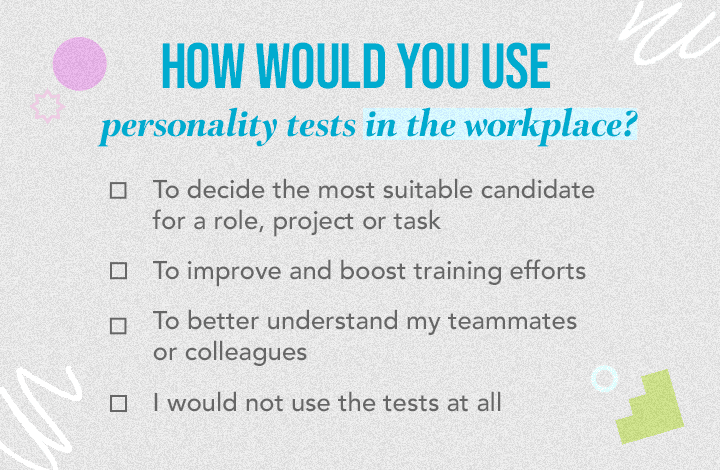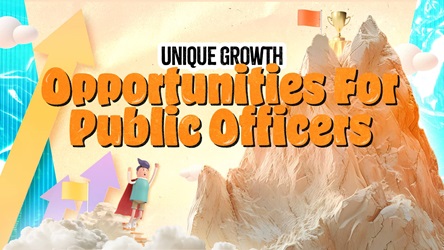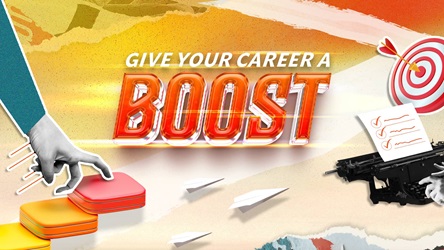Can Personality Tests Help You Assemble the Best Teams?

ENFP, INTJ, ISFJ. These acronyms will sound familiar to anyone who’s taken a Myers-Briggs Type Indicator (MBTI) test – one of over 2,000 personality tests currently available.
Originally used during World War I to identify soldiers prone to nervous breakdowns, personality tests have since made their way into the workplace. Some companies, such as Facebook and Google, use personality tests as a hiring tool. The MBTI, DISC and StrengthsFinder are some of the most popular tests companies use.
These tests tend to measure certain personality traits (such as extraversion, imagination and assertiveness) across different situations. In some tests, the user is then assigned a classification (such as a personality “type”) based on the results.
As an industry currently worth US$2 billion, it’s clear that many employers see the value in personality testing. Whether these tests should be used in the workplace, however, remains up for debate.
Seeing Beneath the Surface
When used well, personality tests can provide useful insights that help employers to hire or assign staff to teams and tasks more effectively.
Personality tests are more impartial and accurate. Job interviews can be unreliable due to the interviewer’s unconscious bias, or the interviewee’s nerves. Personality tests, however, provide clear data that can help employers identify specific qualities required for a role.
This data allows employers to quickly filter out unsuitable candidates, which also helps to speed up hiring. This can be especially useful for large organisations that receive a high number of applications, such as government agencies.
Personality tests are also useful beyond hiring and job allocation. For example, they can help in creating customised training plans, as everyone learns differently and at their own pace.
Self-assessment tools, such as those available at MySkillsFuture, can also make employees aware of their strengths and weaknesses. Equipped with this knowledge, they may seek out training opportunities or roles that cater to their abilities.

A Tool, Not a Solution
Despite their merits, however, personality tests are also criticised for being inaccurate.
A common observation is that these tests are not nuanced enough and therefore risk pigeonholing people. For example, a test might label you as either introverted or extroverted, when in fact you are a bit of both.
Personality tests similarly don’t measure our potential for change. Regardless of personality, with the right systems and support, most of us can adapt to situations to get the job done. Research also shows that our personalities can change over time, especially when we encounter new events like jobs or relationships.
Even though personality tests can help to eliminate biases such as gender and race, they may create biases based on personality types, e.g., that introverts are shy or logic-led people are uncreative. This could lead to assumptions that some personality types cannot carry out certain tasks – when they may just have a different approach to doing the job.
In the worst-case scenario, employees might not even answer truthfully on their tests. To maximise their chances of landing the role, employees may give answers that they think the employer is looking for, or tweak them to appear more capable and suitable.

For some, personality tests are helpful as long as you use a test designed for your intended purpose. For example, Sherrie Hayne of the Myers-Briggs Company explains that the MBTI was not designed to predict job performance. But she lists a few indicators of a good alternative:
- Measures traits, rather than types
- Scores remain consistent over time
- There is extensive documentation to support the test’s reliability
At the end of the day, however, personality tests are just one method of assessing employees. Using them together with other tools such as interviews and assignment tests can paint a fuller picture of a person’s abilities. The most important thing to remember is that they cannot replace one’s own judgement from daily interaction.
Free Tests To Take as a Team
Many personality tests for businesses tend to be costly and may take time to be approved by your HR department or bosses to use. While waiting, here are two free and simple personality tests that you and your team can take together:
- Johari Window: This tool was designed to help people become more self-aware of their positive personality traits. Through this exercise, we can better understand how we see ourselves, as well as how other people perceive us. Think of it as getting a 360° view of yourself. If you are brave enough, you can also try the Nohari Window exercise to map your negative personality traits.
- Big Five Personality Test: This test measures five broad personality traits – extraversion, agreeableness, openness to experience, conscientiousness and neuroticism. The test on this website also lets you create a group link so that you and your colleagues can compare your traits as a team.

To get more stories like this, subscribe to the Challenge Telegram channel.
- POSTED ON
May 10, 2022
- TEXT BY
Hidayah Md Sham
- ILLUSTRATION BY
Lei Ng









